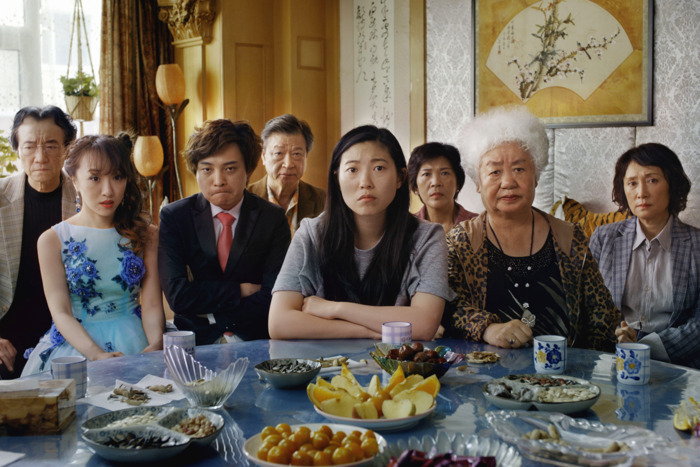
They say write what you know. This is generally sound advice, mostly because specificity is the key to good writing and, through that specificity, we often find something resembling universal truths. It was certainly a smart move for Lulu Wang, the writer and director of the moving and funny The Farewell, which is peppered with the kind of keenly-observed details that make a story come to life.
Awkwafina, excelling in her first (mostly) serious role, plays Billi, the stand-in for Wang, who emigrated from China to New York with her parents when she was quite young. She has dim but almost painfully fond of memories of that childhood, and remains close to Nai Nai—her grandmother, who is played with wonderful warmth and mischief by Zhao Shuzhen.
Billi is relatively happy with her life in Manhattan, although she’s not as successful in her career (she’s just been turned down for a writing fellowship) nor her personal life (she’s single) as she might like. And she’s close to her parents, too, especially her good-hearted father (Tzi Ma). Her mother (Diana Lin) is somewhat stern and withholding.
Then the bad news hits: Nai Nai is sick with cancer and doesn’t have much time to live. What’s more, per a particular Chinese tradition, the family won’t be telling her she’s sick, but instead will make the journey to China to celebrate a cousin’s hastily organized wedding to say a secret goodbye. A despondent Billi disapproves of her family’s scheme, and since she has no poker face, they tell her not to come. Of course, she comes anyway, on her own—and we immediately see the connection she has to Nai Nai. Far from the cliché—that her grandmother would be nagging her about not being married or not thriving professionally—Nai Nai is encouraging and supportive. Their relationship is playful—Nai Nai teases Billi for being glum at parties, mischievously slaps her on the butt, and teaches her tai chi in the garden. She loves and appreciates her granddaughter for exactly who she is.
One of the things that makes The Farewell so winning is that Billi’s belief system, which often mirrors our own, is challenged along the way. She begins to understand why the family doesn’t tell Nai Nai about her illness—they are shouldering the burden of grief and fear for her. And she also learns that there’s more to her mother than meets the eye.
The Farewell is an extraordinarily confident debut from Wang. The film has a slick visual style—humorous slow motion shots that depict the shaggy family as an Ocean’s 11-style gang; painterly long shots; deadpan closeups. It also has a wonderful wit—the widowed Nai Nai has a boyfriend who is sort of lovably clueless—he loudly slurps his soup and pops up after meals without saying a word. A scene at a graveyard makes fun of wailing mourners, who have been hired by families to lay it on thick (among other things, the film explores how different cultures deal with death). Once the wedding itself arrives, it’s a wonderful montage of drunken mayhem and genuine emotion. And, of course, food plays a central role in the film, as the center of Chinese family life, an indirect way to express love, and the one thing that reliably brings people together. Wang has clearly proven that she’s here to stay. I suspect she still has a lot more to say about her particular Chinese-American experience. But even if she chooses to make a science fiction set on the planet Zanzbot, I’ll be in line for a ticket.
